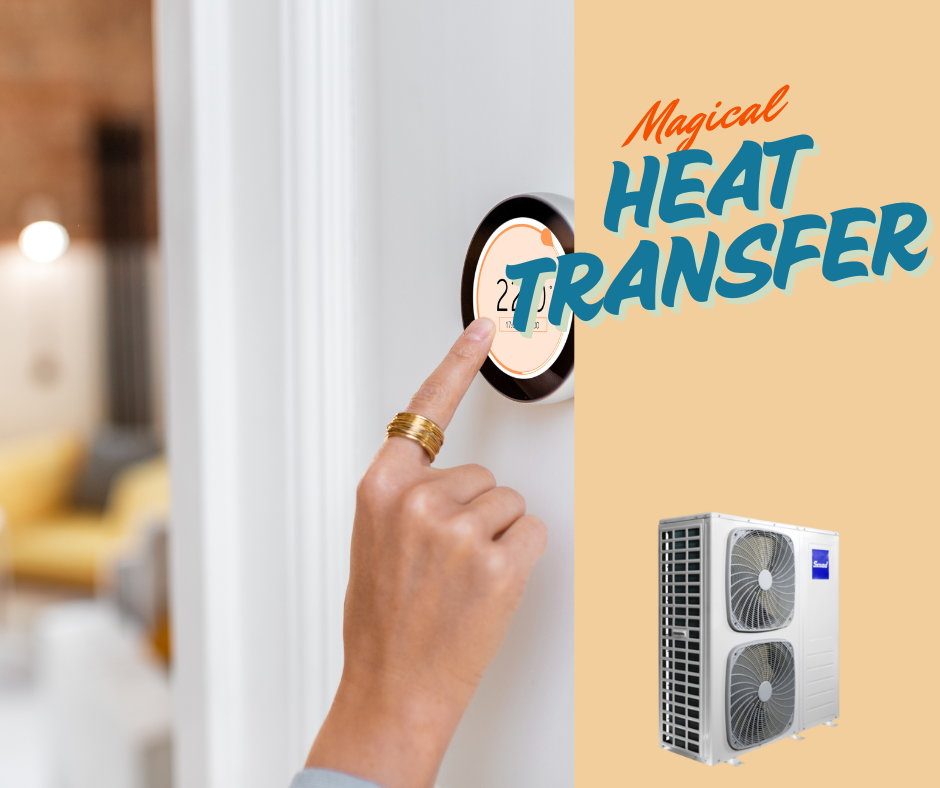Jan. 23, 2025 / Industry News
Skyrocketing energy costs have prompted many homeowners to seek
cost-effective ways to enhance energy efficiency. Among the available solutions,
heat pumps stand out as a highly promising option, delivering substantial
savings compared to conventional heating systems. This article will explain the
mechanics behind heat pumps, illustrate their exceptional efficiency, and detail
how government incentives can make them even more accessible.
I. The Secret of Heat Transfer: How Heat Pumps Deliver
Savings

Conventional heating systems, such as electric resistance heaters and
furnaces, operate by directly producing heat through energy conversion
(electricity or fuel). This method is inherently wasteful, as a considerable
amount of energy dissipates as lost heat. A simple analogy is a toaster; while
it generates heat, much of the energy is used to heat the internal components
and surrounding environment, not just the bread.
Conversely, heat pumps employ a fundamentally different approach: they shift
heat rather than create it. In heating mode, they draw heat from the external
air—even in chilly conditions—and transfer it into your home. During warmer
months, they reverse the process, extracting indoor heat and releasing it
outdoors for cooling.
This heat transfer mechanism is remarkably efficient. Imagine the difference
between transporting water from one container to another versus generating new
water in the destination container. The former (transferring heat) demands
significantly less effort (energy) than the latter (generating heat).
A heat pump's performance is gauged by its Coefficient of Performance (COP).
A COP of 3 signifies that for every unit of electricity consumed, the heat pump
delivers three units of heat. This superior performance stems from the fact that
it's moving heat, not creating it. Traditional heating systems typically have a
COP approaching 1, producing approximately one unit of heat per unit of energy
used.
How Much Can You Really Save with a heat
pump?
The actual energy savings you can achieve with a heat pump depend on several
factors, including your climate, the efficiency of your existing system, and the
specific heat pump model you choose. However, here are some general
estimates:
· Compared to Electric Resistance Heating: Heat pumps can
reduce your electricity use for heating by up to 75%. This means if you're
currently using baseboard heaters or an electric furnace, switching to a heat
pump could drastically lower your heating bills.
· Compared to Gas Furnaces: While the savings are typically
less dramatic than with electric resistance heating, heat pumps can still offer
significant reductions in energy consumption, especially in moderate climates.
You could see savings of 25-50% depending on the efficiency of
your gas furnace and the heat pump's performance.
· Annual Savings: Studies have shown that the average
household in the Europe can save around €370 per year by switching to a heat
pump. In some cases, homeowners switching from inefficient systems running on
fuel oil, propane, or older electric resistance systems have reported savings
closer to $1,000 per year.
II. Maximizing Affordability: Exploring Heat Pump
Subsidies

Government initiatives promoting Net Zero targets by 2050 are reshaping
residential heating practices. Gas boilers are becoming increasingly phased out
as decarbonizing home heating is crucial for a sustainable future. Governments
are actively supporting homeowners in this transition.
Heat pumps not only benefit the environment but also offer tangible financial
advantages. By extracting heat from the outside air and using it to warm your
home, heat pumps can drastically reduce your energy expenditures compared to
traditional systems like gas boilers. Furthermore, they provide consistent and
comfortable heating throughout your living space.
UK and European Support Schemes
· The UK: Boiler Upgrade Scheme: The UK's Boiler Upgrade
Scheme provides homeowners with up to £7,500 (or £9,000 in Scotland) towards
heat pump installation costs. Eligibility depends on factors like your
property's energy performance certificate (EPC) rating.
· Europe-wide Incentives: Beyond the UK, various European
countries are implementing programs to encourage heat pump adoption. These
incentives, including tax breaks, rebates, and grants, vary by country.
Investing in a heat pump can thus reduce your environmental impact and
potentially yield substantial financial returns.
SMAD offers a range of high-performing heat pumps designed to suit diverse
housing needs. Our expert team offers guidance in selecting the ideal heat pump
for your home and can assist with the subsidy application process.
Don't miss the opportunity to save money and contribute to a greener future
with a heat pump. Contact our team at SMAD to explore your options and discover
how a heat pump can benefit your home.


